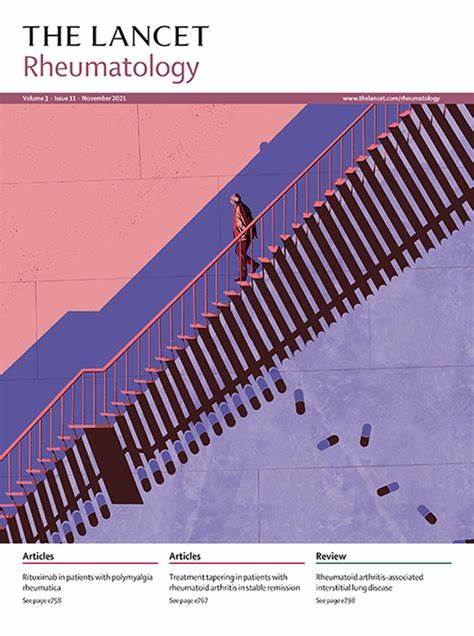The concept of difficult-to-treat disease in rheumatology: where next?
IF 15
1区 医学
Q1 RHEUMATOLOGY
引用次数: 0
Abstract
New pathogenesis-based therapeutics and evidence-based consensus treatment recommendations, often with predefined treatment goals, have remarkably improved outcomes across many chronic diseases. However, a clinically significant subgroup of patients responds poorly to interventions and show a progressive decline in the disease trajectory, which poses an increasing health-care challenge. Difficult-to-treat approaches exist in several areas of medicine and the need for similar definitions has recently also emerged in rheumatology. The term difficult-to-treat refers not only to patients with pathology-driven, treatment-refractory disease, but also implicates multiple other factors that can contribute to patients being in this state, including having few treatment options, misdiagnosis, and coincident psychosocial factors. Therefore, the difficult-to-treat state requires a comprehensive, holistic, multidisciplinary approach that considers the specific characteristics of each disease and the personalised needs of the patient. In this Personal View, we provide an overview of the different aspects of the concept of difficult-to-treat disease, highlight its advantages, and propose the importance of incorporating this concept more widely in the design of rheumatological treatment strategies.
风湿病难治性疾病的概念:下一步是什么?
新的基于发病机制的治疗方法和基于证据的共识治疗建议,通常具有预定义的治疗目标,显著改善了许多慢性疾病的预后。然而,临床上重要的患者亚组对干预反应不佳,疾病轨迹逐渐下降,这对医疗保健构成了越来越大的挑战。难以治疗的方法存在于医学的几个领域,最近风湿病学也出现了对类似定义的需求。“难治性”一词不仅指患有病理驱动的、治疗难治性疾病的患者,还包括导致患者处于这种状态的多种其他因素,包括治疗选择少、误诊和同时发生的社会心理因素。因此,难以治疗的状态需要一种综合的、整体的、多学科的方法,考虑到每种疾病的具体特征和患者的个性化需求。在这篇个人观点中,我们概述了难治性疾病概念的不同方面,强调了其优势,并提出了在风湿病治疗策略设计中更广泛地纳入这一概念的重要性。
本文章由计算机程序翻译,如有差异,请以英文原文为准。
求助全文
约1分钟内获得全文
求助全文
来源期刊

Lancet Rheumatology
RHEUMATOLOGY-
CiteScore
34.70
自引率
3.10%
发文量
279
期刊介绍:
The Lancet Rheumatology, an independent journal, is dedicated to publishing content relevant to rheumatology specialists worldwide. It focuses on studies that advance clinical practice, challenge existing norms, and advocate for changes in health policy. The journal covers clinical research, particularly clinical trials, expert reviews, and thought-provoking commentary on the diagnosis, classification, management, and prevention of rheumatic diseases, including arthritis, musculoskeletal disorders, connective tissue diseases, and immune system disorders. Additionally, it publishes high-quality translational studies supported by robust clinical data, prioritizing those that identify potential new therapeutic targets, advance precision medicine efforts, or directly contribute to future clinical trials.
With its strong clinical orientation, The Lancet Rheumatology serves as an independent voice for the rheumatology community, advocating strongly for the enhancement of patients' lives affected by rheumatic diseases worldwide.
 求助内容:
求助内容: 应助结果提醒方式:
应助结果提醒方式:


